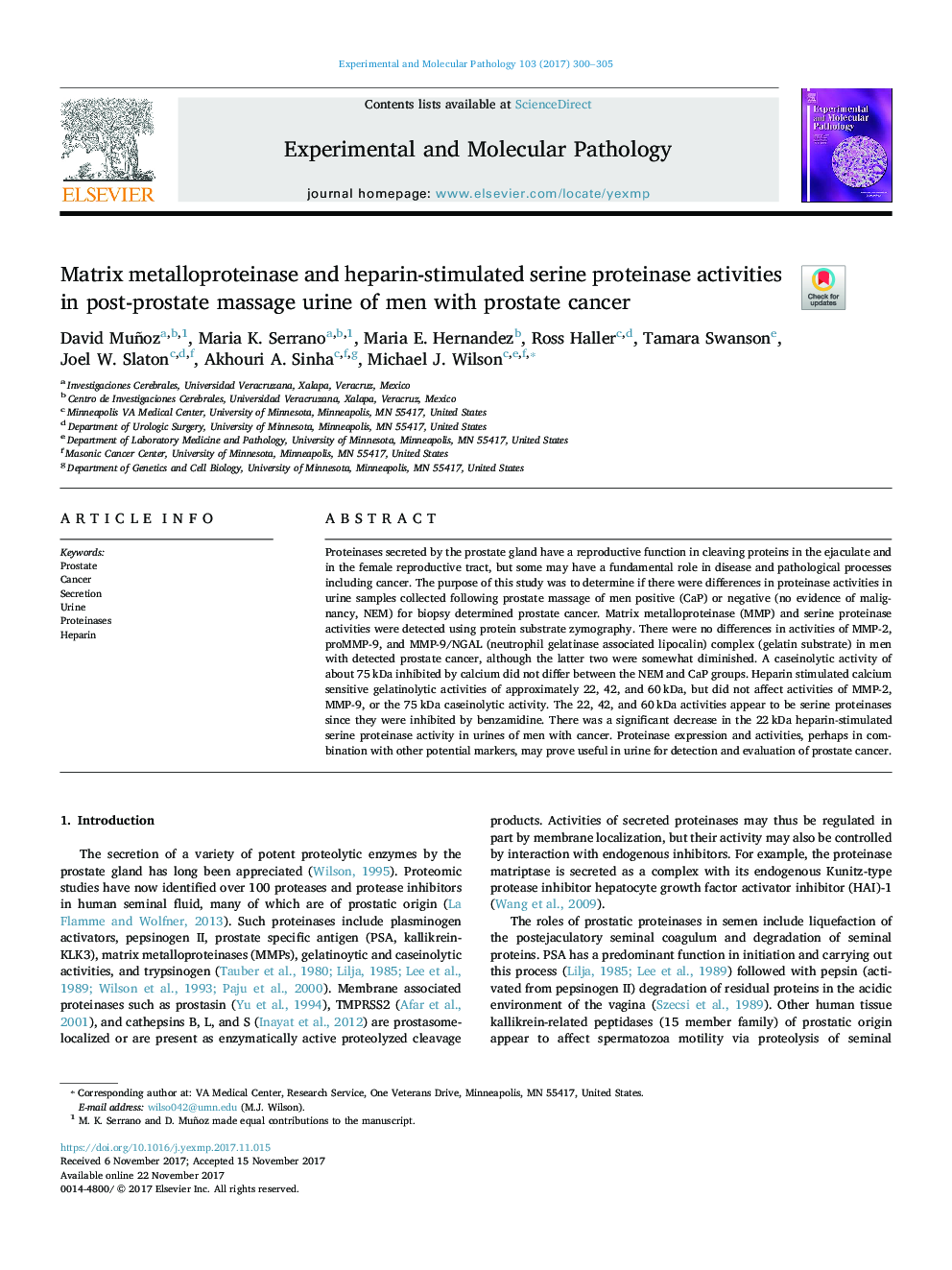| Article ID | Journal | Published Year | Pages | File Type |
|---|---|---|---|---|
| 8624229 | Experimental and Molecular Pathology | 2017 | 6 Pages |
Abstract
Proteinases secreted by the prostate gland have a reproductive function in cleaving proteins in the ejaculate and in the female reproductive tract, but some may have a fundamental role in disease and pathological processes including cancer. The purpose of this study was to determine if there were differences in proteinase activities in urine samples collected following prostate massage of men positive (CaP) or negative (no evidence of malignancy, NEM) for biopsy determined prostate cancer. Matrix metalloproteinase (MMP) and serine proteinase activities were detected using protein substrate zymography. There were no differences in activities of MMP-2, proMMP-9, and MMP-9/NGAL (neutrophil gelatinase associated lipocalin) complex (gelatin substrate) in men with detected prostate cancer, although the latter two were somewhat diminished. A caseinolytic activity of about 75Â kDa inhibited by calcium did not differ between the NEM and CaP groups. Heparin stimulated calcium sensitive gelatinolytic activities of approximately 22, 42, and 60Â kDa, but did not affect activities of MMP-2, MMP-9, or the 75Â kDa caseinolytic activity. The 22, 42, and 60Â kDa activities appear to be serine proteinases since they were inhibited by benzamidine. There was a significant decrease in the 22Â kDa heparin-stimulated serine proteinase activity in urines of men with cancer. Proteinase expression and activities, perhaps in combination with other potential markers, may prove useful in urine for detection and evaluation of prostate cancer.
Related Topics
Life Sciences
Biochemistry, Genetics and Molecular Biology
Clinical Biochemistry
Authors
David Muñoz, Maria K. Serrano, Maria E. Hernandez, Ross Haller, Tamara Swanson, Joel W. Slaton, Akhouri A. Sinha, Michael J. Wilson,
